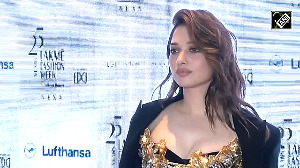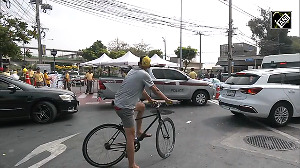
A 17-year-old Indian-origin boy has developed a low-cost 3D-printed robotic arm, which is programmed to replicate movements of a human hand -- such as pinching, grabbing or holding a spoon.
Nilay Mehta, student of the Irvine High School in California, US, has won six science fair awards so far for his creation, including third place at an international fair held earlier this year.
The robotic arm, made with 3D printed parts, operates by voice command. The user can make the hand perform specific movements by speaking into a small microphone attached to the arm.
"You can say 'spoon' and the hand will make a shape that will be able to hold a spoon," Mehta said.
The hand can also simulate 'pinch', 'grab' and other common figurations.
Mehta began researching project ideas last year for the science fairs he wanted to enter.
"I knew I wanted to do something in prosthetics. One issue I saw is that there were no lower-cost options," Mehta said.
Mehta said that high-end prosthetic arms cost upward of USD 35,000 (Rs 22 lakh). Motors and 3D-printed parts used to make his arm added up to about USD 260 (around Rs 16 thousand), he said.
Along with cost, he wanted the project to help solve another problem for certain amputees -- the ability to easily upgrade the prosthesis.
"For kids who are growing, they have to change their prosthetics every six to eight months," Mehta said.
Mehta hopes to further develop the robotic arm so that it can be tested with an amputee.
Image: Nilay Mehta at the Orange County Science and Engineering Fair. Photograph: Orange County Scholar











 © 2025
© 2025